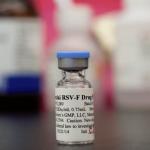From 1968 to 2019, Americans experienced a remarkable increase in life expectancy, from 70 to 79 years. Much of that was due to advances in drugs and vaccines.
FDA
As Stat reports, Senators Manchin and Markey have
Earlier this week, the Food and Drug Administration issued a draft of proposed guidelines for clinical re
The FDA is the nation’s most ubiquitous regulatory agency, responsible for overseeing products – drugs, medical devices, tobacco products, and most foods -- that account for about 20 cents of every dollar consumers spend. It is currently goi
It is not every day that drug development results in a breakthrough with the potential to eliminate an often serious and sometimes fatal disease, but one of those days occurred early last month.
This week is full of news relevant to those of us concerned about the future of antibiotics. The pharmaceutical industry is rebelling against the US plan to have Medicare negotiate drug prices.
Writing in the Australian journal The Quadrant a year and a half ago, I criticized the Australian government’s
During my years as an FDA official, I learned that there is a fundamental fact of life that underlies all drug testing and regulatory review: The data are seldom as complete and unequivocal as you might like.












